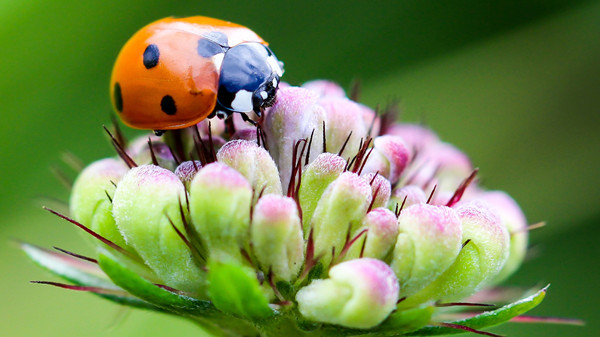In Sheffield, the rhythm of city life intertwines seamlessly with waterways and trees, and amongst the old brownfield sites and the parks lies a wealth of wildlife waiting to be cherished and protected. From the bustling streets of its city centre to the tranquil retreats of its surrounding countryside, Sheffield is renowned for its diverse ecosystems and rich biodiversity. The wildlife we find in our streets and up on the hills plays a pivotal role in sustaining the delicate balance of our environment. Every fluttering butterfly, chirping bird, and buzzing bee contributes to the intricate web of life upon which we all depend, so this summer, I want to encourage you to do your bit for all things great and small.
Sheffield’s ecosystem is more diverse than you might think for a city. However, both the city and its surrounding countryside are losing natural biodiversity. According to the Sheffield and Rotherham Wildlife Trust (SRWT), over 75% of Sheffield’s wildflower grassland has been lost since 1980, remaining heathlands are fragmented and degraded, and only two populations of native UK white-clawed crayfish remain in the city. Efforts are underway to boost biodiversity once again.
The diverse ecosystems in Sheffield play a crucial role in our lives. Not only do they offer stunning natural beauty, but they are also part of the solution to fight the climate crisis. Our natural areas are essential carbon sinks, they help to purify the air we breathe and keep waterways clean. It’s vital that we protect and preserve these habitats, as they are not just picturesque landscapes but the very foundation of our existence.
Wildlife and landscape conservation is incredibly important for not just the ecological balance but also for our own health and well-being. The natural world provides us with fresh air to breathe, clean water to drink, and fertile soils to grow our food. Moreover, healthy ecosystems play a vital role in supporting agricultural productivity. We need pollinators to ensure plants grow their delicious fruits. Birds, rodents and bugs help keep pests under control meaning better harvests. And healthy, resilient landscapes can help reduce the damaging effects of hazards like droughts and flooding that are happening more frequently as the climate changes. In turn, all of this can help ensure a consistent and abundant supply of nourishing food for our tables.
It may surprise you also to learn that diverse wildlife is good for our local economy too. The natural beauty of Sheffield attracts visitors from far and wide, bolstering tourism and supporting local businesses. From birdwatching excursions to leisurely hikes through peak trails, the abundance of wildlife enriches our lives and contributes to the economic prosperity of our city. There’s a reason why we are known as the outdoor city!
So, the benefits we can reap from protecting and encouraging wildlife in our city seem pretty clear. Fortunately, there are many ways in which each of us can play a part in nurturing and safeguarding Sheffield’s wildlife.
Of course, the most obvious thing may seem to transform your backyard into a sanctuary for birds, bees, and butterflies. Planting native species, providing sources of water, and creating sheltered habitats are small actions that can have a big impact on local biodiversity, fostering a thriving ecosystem right outside your doorstep.
But, if you don’t have a garden, you can still help. Volunteering at allotments and community growing spaces with an emphasis on wildlife friendly growing is one opportunity you can get involved in. Check out organisations like Darnall Allotment Project, United Women’s Affiliation, Green City Action, Grow UK, Food Works Sheffield or Regather for some volunteering sessions near you.
Fancy something more leisurely? Take a stroll through Sheffield’s parks and green spaces, armed with a pair of gloves and a keen eye for litter and the animals will thank you for it. By removing trash from our natural environments, we’re not only enhancing their beauty but also protecting wildlife from harm.
But it’s not just about getting your hands dirty. You can choose to support local farmers who prioritise wildlife-friendly practices, such as agroforestry, organic cultivation, and habitat restoration. There are some fantastic Sheffield farms doing just this such as Moss Valley Market Gardens, or Ughill Farm that was recently acquired by SRWT. By voting with our wallets, we can incentivise sustainable agricultural methods that benefit both farmers and wildlife alike. An easy way to do this is by signing up to a local box scheme, like those run by Regather, Beanies, or Sheffield Organic Growers.
I have one more suggestion, and that is to join SRWT for their 30 Days Wild challenge in collaboration with a national initiative from The Wildlife Trusts. Throughout the entire month of June, they invite you to do one wild thing per day to connect with the wonders of nature. They’ll be the perfect activities for families, couples and friends to do together this summer. I can’t guarantee the sun but I can the fun. Visit their site for more information: www.wildsheffield.com/30-days-wild
As summer brings warmth, our actions today shape tomorrow. The climate crisis threatens humanity and the natural world. By protecting Sheffield’s wildlife and embracing sustainable living, we secure a brighter future. Let’s commit to safeguarding our local ecosystems and supporting sustainability. Together, let’s ensure Sheffield’s wildlife thrives.

